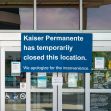Over the past few years, hundreds of COVID-19-related insurance claims by small businesses have been rejected because the claimant was unable to show the “direct physical loss or damage” required by the policy. Brooklyn Restaurants (Brooklyn), the plaintiff in a case against Sentinel Insurance Company (Sentinel), is different. The plaintiff’s contract with Sentinel specifically covered losses caused by viruses, and the case will now go to trial.
The case began when Harry’s Coffee Shop in La Jolla, California, owned by Brooklyn Restaurants, had to partially shut down due to COVID-19. The restaurant filed a claim against Sentinel for coverage under a property insurance policy that was in effect from August 2019 to August 2020. Brooklyn amended its complaint to include a reference to the government stay-at-home orders, which prohibited in-restaurant dining. Brooklyn also explained that the coronavirus stays on surfaces for “many days.”
When Sentinel refused to pay, the restaurant sued Sentinel for “breach of contract, breach of the implied covenant of good faith and fair dealing, declaratory relief, and professional negligence.”
The claims were denied when San Diego Superior Court Judge Eddie C. Sturgeon granted Sentinel’s motion for judgment on the pleading and later dismissed the case because he said there was no coverage in the policy for those types of business losses. Brooklyn appealed, arguing that its insurance policy is different from the multitude of other California cases that could not prove physical damage because it contained a unique provision: losses attributable to a virus were specifically covered.
The case came before Division One of California’s Fourth District Court of Appeal, where a unanimous three-justice panel agreed with Brooklyn’s interpretation that “physical loss includes simply cleaning an area affected by the coronavirus.” The policy could thus cover sanitation efforts to remove the virus so the restaurant could remain partially open. Writing for the court on March 20, Acting Presiding Justice Richard D. Huffman said, “Consequently, this is one of those rare cases where we conclude an insured has adequately alleged a direct physical loss or damage under the subject policy, at least raising the specter of coverage under that policy.” Justices William Dato and Jose S. Castillo concurred.
In the opinion, Huffman pointed out that because of Sturgeon’s dismissal, the case is currently only at the pleading stage so a trial will be necessary to examine the evidence. At that time, the policy’s various exclusions and conditions will be reviewed to see whether they are “illusory,” as Brooklyn charges.
Justice Huffman then provided details of the 196-page policy between Brooklyn and Sentinel. Importantly, the policy contained a section titled, “Limited Fungi, Bacteria, or Virus Coverage,” (the Virus Endorsement). This provision added “limited coverage in certain circumstances for ‘loss or damage’ caused by “virus.” But it excluded losses or damage “directly or indirectly by the presence, growth, proliferation, spread of any activity of ‘fungi,’ wet rot, dry rot, bacteria or virus subject to an exception where the loss or damage falls within the limited coverage provided under the Virus Endorsement.”
With the insurance policy before it, the opinion explained that the appeal requires the Fourth District appellate court to interpret its coverage. It also said that Brooklyn, as the insured, has the burden of establishing its claim unless it was specifically excluded and within its basic coverage. Sentinel has the burden of establishing that a specific exclusion applies to Brooklyn’s circumstances.
Huffman then applied these rules to the Sentinel policy that states it will pay for physical loss or damage as well as business losses. The opinion explained that the key question is whether Brooklyn’s property loss is either “damage to or loss of property” under the policy. He notes that several courts have already determined that the “mere presence” of COVID on surfaces does not equate with “damage to or loss of property.” However, he went on to explain that Sentinel’s “Virus Endorsement” makes it different from existing precedents.
The Virus Endorsement, the opinion explained, contains several specific exceptions, but will cover other damage caused by viruses and other substances such as fungi or dry rot. The parties, however, disagree about what is and is not covered. The opinion then interpreted three relevant policy sections. The first quotes the policy that will cover “direct physical loss or direct physical damage to caused by . . . virus, including the cost of removal of the . . . virus.” (Bold and italics in original). Huffman concluded that Brooklyn “sufficiently alleged that it suffered the requisite ‘loss or damage’ …under the Virus Endorsement.
The second issue asks whether the Virus Exclusion establishes that Brooklyn is not entitled to coverage related to the ‘cost of removal’ from surfaces at Harry’s Coffee Shop. Brooklyn argues that the numerous exemptions in Sentinel’s policy make it “illusory.” Huffman was persuaded and wrote, “Insurers cannot take in premium for a coverage grant that names a specifically covered risk—here virus
Contamination —and then justify denying coverage for it under all circumstances because some other risk may be covered under the same coverage grant.”
Third, the appellate court wrote that Sentinel’s argument about viruses being caused by a windstorm, which is a covered peril, was not applicable as it was in a previous case because “Brooklyn does not operate a farm (like plaintiffs in the cited precedent), there is no livestock in Harry’s Coffee Shop to be harmed by a virus traveling via a windstorm…This ‘oddball scenario’ has little applicability to the instant matter.”
With so much unsettled, Hoffman concluded by reiterating that the case is only at the pleading stage without a sufficient record to “ascertain what the parties’ intentions” were when they entered into the policy. He said that the facts and evidence are necessary here “where the parties seem to be at such loggerheads regarding what the Policy is meant to cover.” Therefore, Sturgeon, the trial judge, was reversed and the case remanded to superior court with directions to enter an order denying Sentinel’s motion for judgment on the pleadings.
With the trial yet to come, it is still not too early to learn a lesson. Be crystal clear about what a policy is meant to cover. Read the policy carefully and, consider adding a Virus Endorsement, especially at a time when new pandemics are possible. Or probable. And if you already have a policy, it might be wise to amend it.






